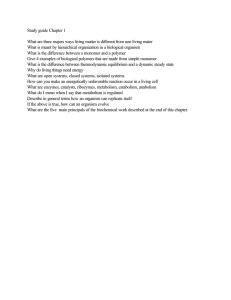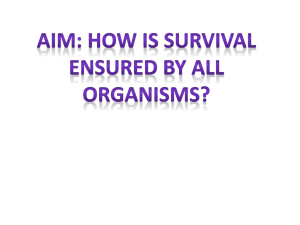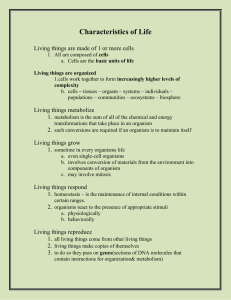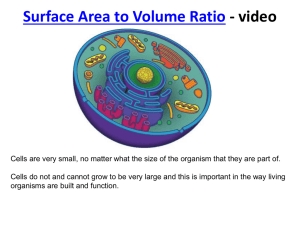1. Which term refers to all the activities required to sustain life? (1
advertisement
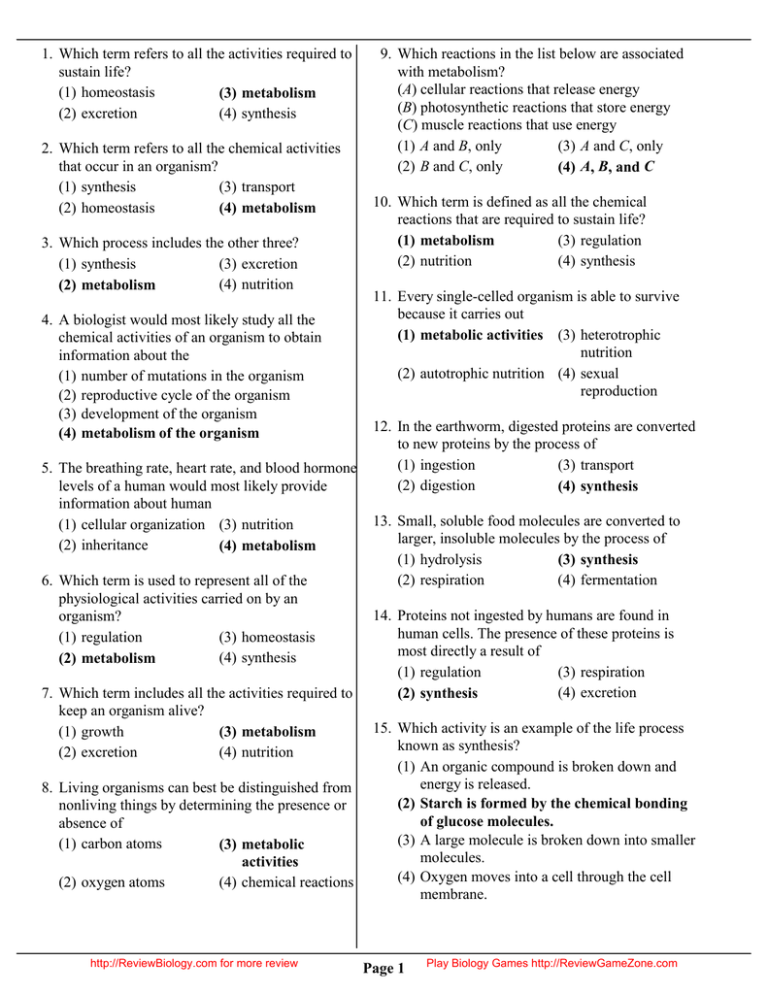
1. Which term refers to all the activities required to sustain life? (1) homeostasis (3) metabolism (2) excretion (4) synthesis 2. Which term refers to all the chemical activities that occur in an organism? (1) synthesis (3) transport (2) homeostasis (4) metabolism 3. Which process includes the other three? (1) synthesis (3) excretion (4) nutrition (2) metabolism 4. A biologist would most likely study all the chemical activities of an organism to obtain information about the (1) number of mutations in the organism (2) reproductive cycle of the organism (3) development of the organism (4) metabolism of the organism 5. The breathing rate, heart rate, and blood hormone levels of a human would most likely provide information about human (1) cellular organization (3) nutrition (2) inheritance (4) metabolism 6. Which term is used to represent all of the physiological activities carried on by an organism? (1) regulation (3) homeostasis (4) synthesis (2) metabolism 7. Which term includes all the activities required to keep an organism alive? (1) growth (3) metabolism (2) excretion (4) nutrition 8. Living organisms can best be distinguished from nonliving things by determining the presence or absence of (1) carbon atoms (3) metabolic activities (2) oxygen atoms (4) chemical reactions http://ReviewBiology.com for more review 9. Which reactions in the list below are associated with metabolism? (A) cellular reactions that release energy (B) photosynthetic reactions that store energy (C) muscle reactions that use energy (1) A and B, only (3) A and C, only (2) B and C, only (4) A, B, and C 10. Which term is defined as all the chemical reactions that are required to sustain life? (3) regulation (1) metabolism (2) nutrition (4) synthesis 11. Every single-celled organism is able to survive because it carries out (1) metabolic activities (3) heterotrophic nutrition (2) autotrophic nutrition (4) sexual reproduction 12. In the earthworm, digested proteins are converted to new proteins by the process of (1) ingestion (3) transport (2) digestion (4) synthesis 13. Small, soluble food molecules are converted to larger, insoluble molecules by the process of (1) hydrolysis (3) synthesis (2) respiration (4) fermentation 14. Proteins not ingested by humans are found in human cells. The presence of these proteins is most directly a result of (1) regulation (3) respiration (4) excretion (2) synthesis 15. Which activity is an example of the life process known as synthesis? (1) An organic compound is broken down and energy is released. (2) Starch is formed by the chemical bonding of glucose molecules. (3) A large molecule is broken down into smaller molecules. (4) Oxygen moves into a cell through the cell membrane. Page 1 Play Biology Games http://ReviewGameZone.com
